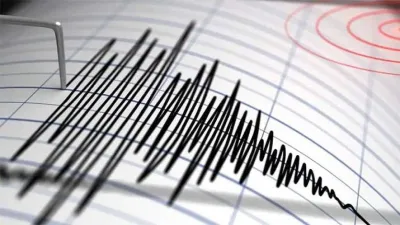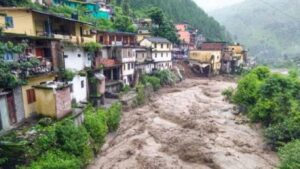
Telangana Earthquake: On Wednesday morning, a 5.3-magnitude earthquake struck Telangana’s Mulugu district, sending tremors across Hyderabad and parts of Andhra Pradesh. The National Center for Seismology (NCS) confirmed that the quake occurred at 7:27 a.m., sparking panic among residents and raising concerns about aftershocks.
The earthquake originated at a depth of 40 kilometers beneath Mulugu, according to the NCS. Fortunately, no casualties or significant property damage were reported. Authorities are closely monitoring the situation, and experts have urged residents to stay cautious, particularly by avoiding crowded or unstable structures in the event of aftershocks.
Telangana’s seismic activity is typically low, making this earthquake an unusual and noteworthy event. India is divided into four seismic zones, ranging from Zone II (lowest risk) to Zone V (highest risk). Telangana falls under Zone II, which is generally considered a low-seismicity area.
National data indicates that around 11% of India’s land lies in Zone V, 18% in Zone IV, 30% in Zone III, and 41% in Zone II. Despite this categorization, Wednesday’s earthquake was one of the strongest in Telangana in two decades. An X (formerly Twitter) user, Telangana Weatherman, noted, “For the first time in 20 years, Telangana experienced one of its strongest earthquakes, with a 5.3 magnitude quake centered in Mulugu. Tremors were felt across the state, including Hyderabad.”
The tremors were felt in several districts, including Warangal, Bhadrachalam, Godavarikhani, Khammam, Vijayawada, Bhupalpally, Chandanagar, and Nallagandla. Many residents described the event as brief but alarming, with social media buzzing with firsthand accounts of the rare seismic activity.
Telangana’s quake is part of a broader pattern of recent seismic activity across India:
Assam’s Karbi Anglong: On November 30, a 2.9-magnitude earthquake struck the Karbi Anglong region at 2:40 a.m. The tremor, originating at a depth of 25 kilometers, was relatively minor.
Jammu and Kashmir: A 5.8-magnitude earthquake occurred on November 28 at 4:19 p.m. The epicenter was in Afghanistan at a depth of 165 kilometers. Thankfully, no damage or injuries were reported.
A Wake-Up Call for Preparedness: The 5.3-magnitude earthquake in Telangana serves as a reminder that even regions classified as low-risk are not immune to seismic events. Although no serious damage was reported, the incident underscores the importance of earthquake preparedness and awareness.







